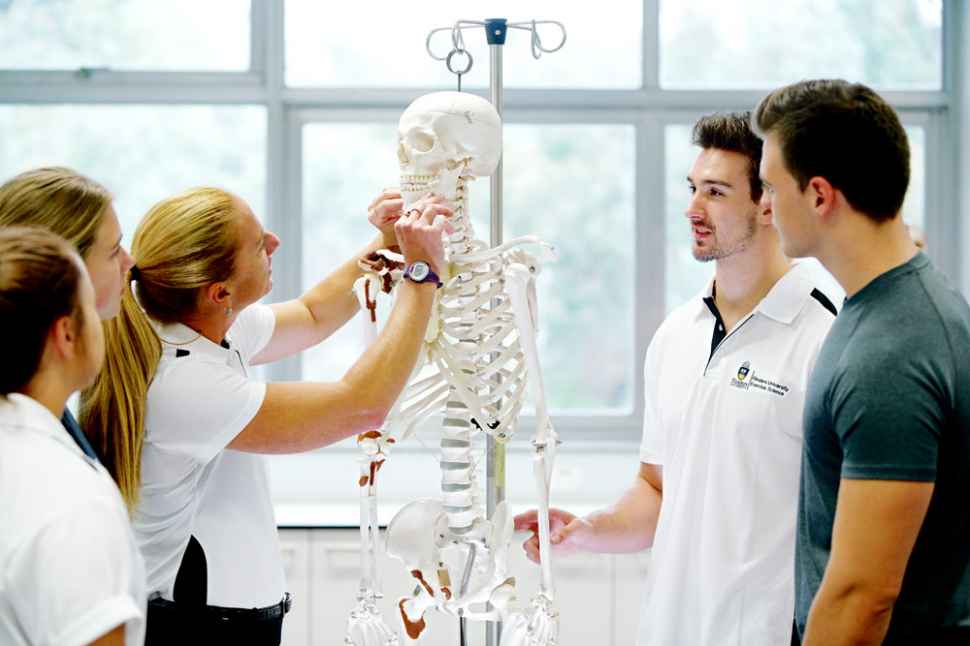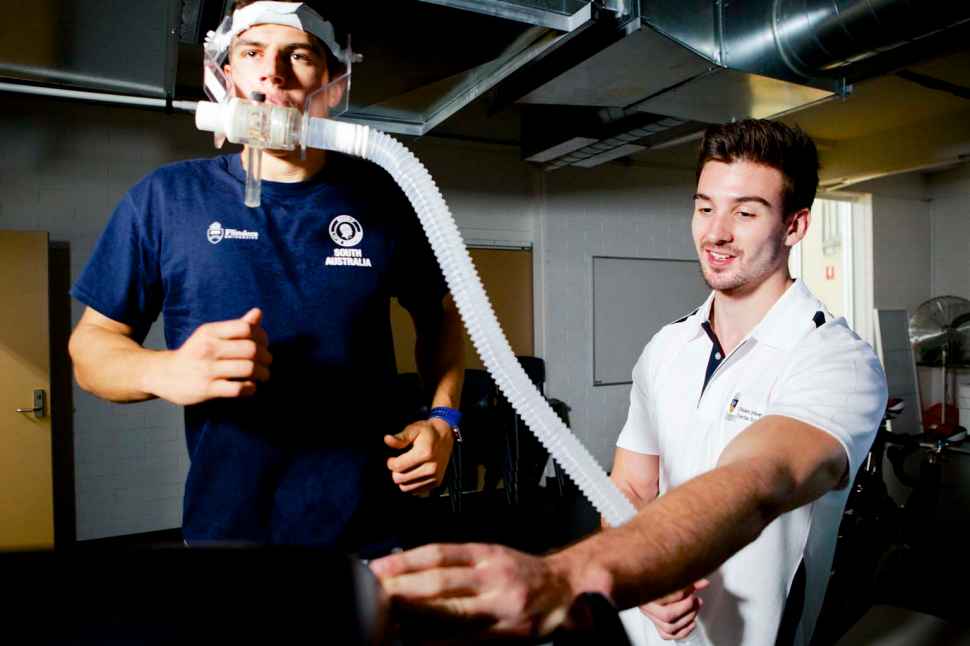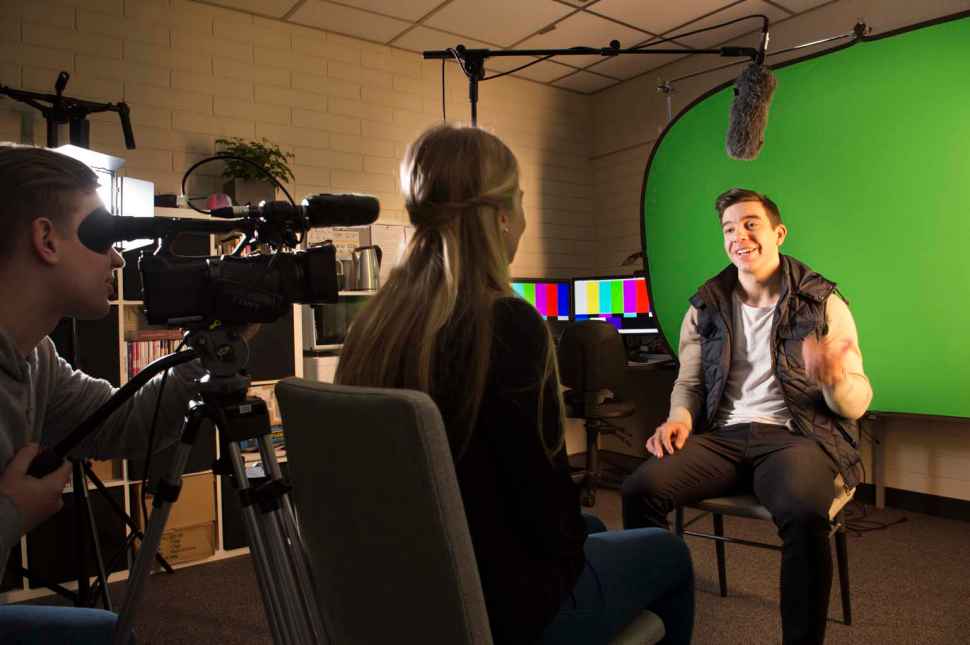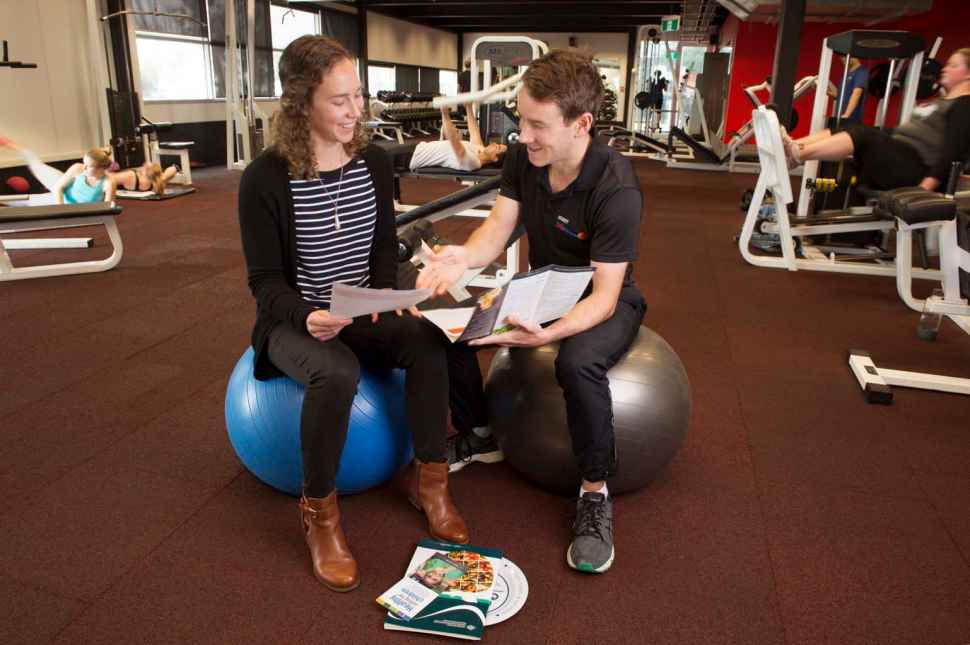Want to combine science, nutrition and exercise into a career?
If you are equally passionate about nutrition and exercise as a career, we have designed a unique degree with you in mind.
The Bachelor of Human Nutrition, Bachelor of Exercise Science (combined degree) allows you to complete two degrees with only one year of extra study.
On completion of the four year combined degree, graduates may apply for registration as an Associate Nutritionist (ANutr) with the Nutrition Society of Australia (Inc) and eligible to apply for membership with Exercise and Sport Science Australia (ESSA).


Bachelor of Human Nutrition/Bachelor of Exercise Science
Duration: Four years full-time or part-time equivalent.
Study mode: On campus. Some online topics available.
ATAR: New in 2017
SATAC code: 234881
Bachelor of Human Nutrition
Bachelor of Exercise Science
BIOL1102 – Molecular Basis of Life (4.5 units)
CHEM1202 – Chemistry for the Life Sciences (4.5 units)
EXSC1001– Fundamentals of Exercise Science (4.5 units)
HLPE2533 – Exercise Prescription and Physiology (4.5 units)
NUTD1105 – Food Systems (4.5 units)
HLPE1552 – Human Functional Anatomy in Sport and Exercise Science
NUTD1106 – Nutrition, Physical Activity and Health (4.5 units)
Plus one of:
CHEM1101 – Chemical Structure and Bonding (4.5 units)
CHEM1201 – General Chemistry (4.5 units)
BIOL2771 – Biochemistry (4.5 units)
EXSC2002– Exercise Prescription in Motor Control and Learning (4.5 units)
HLTH1003 – Legal and Ethical Aspects of Health Care (4.5 units)
HLTH1004 – Human Bioscience (4.5 units)
HLTH2105 – Health: A Psychological Perspective (4.5 units)
MMED3933 – Biochemistry of Human Disease (4.5 units)
ENGR2862 – Sports Biomechanics(4.5 units)
NUTD2102 – Food Products and Preparation (4.5 units)
HLPE2530 – Physical Activity and Health (4.5 units)
MMED2931– Human Physiology (4.5 units)
HLTH3102 – Qualitative Research Methods (4.5 units)
HLTH3105 – Quantitative Methods for Social Health Research (4.5 units)
MMED2932 – Integrative Human Physiology (4.5 units)
NUTD2101 – Nutrition Across the Lifecycle (4.5 units)
NUTD2105 – Individual, Social and Environmental Perspectives on Food Consumption (4.5 units)
NUTD3203 – Nutrition for Sports Performance (4.5 units)
EXSC3001 – Advanced Topics in Exercise Science (4.5 units)
EXSC3002 – Professional Practice in Exercise Science (4.5 units)
HLTH3010 – Psychology of Exercise, Health and Behaviour Change (4.5 units)
MMED3932 – Body Systems (4.5 units)
NUTD3101 – Fundamentals of Nutritional Epidemiology (4.5 units)
NUTD3102 Nutrients Role and Function (4.5 units)
NUTD3107 – Public Health and Community Nutrition (4.5 units)
NUTDXXXX – Public Communications in Nutrition (4.5 units)
To qualify for the Bachelor of Human Nutrition, Bachelor of Exercise Science, you must successfully complete 144 units of study with a grade of P or NGP or better in each topic


Why study human nutrition and exercise science?
- Be prepared to deliver quality preventative practice within a wide range of settings that includes nutrition, exercise, health education or health promotion.
- Learn from experts in the field and gain 140 hours of invaluable work experience in exercise science.
- Choose from specialisations in starting your own business or entrepreneurial venture.
- Graduate after four years with a qualification in nutrition and eligible to apply for ESSA membership in exercise science.
Pathways to further study
The Bachelor of Human Nutrition, Bachelor of Exercise Science (combined degree) is designed to offer other pathways of study within Nutrition, Exercise Physiology, Medicine and Education.
Students will obtain the required prerequisites to apply for lateral transfer to the Bachelor of Nutrition and Dietetics on completion of two years (72 units).
Graduates will be eligible to apply for entry to either the research or coursework pathway of the Master of Nutrition and Dietetics. The course also provides a pathway to the Masters of Exercise Physiology, which leads to application for ESSA membership as an Accredited Exercise Physiologist.
Other options include graduate-entry teaching qualifications (e.g. Master of Teaching (Secondary), with a focus on a teaching role in nutrition and exercise and the Graduate Medical Program).
There are also graduate Public Health opportunities and the opportunity to continue into higher research degrees.
Careers
Some potential careers:
- Exercise Scientist & Registered Nutritionist
- Health & Injury Prevention Advisor
- Nutrition & Exercise Consultant
- Nutrition & Lifestyle Advisor
- Sport & Exercise Science Officer
- Active Living Project Officer
- Nutrition & Health Coach
- Nutrition & Exercise Science Researcher.
Potential employers include:
- Local governments (councils)
- Private health insurance companies
- SA Health
- Department for Recreation and Sport
- Non-government organisations (eg Heart Foundation)
- Food companies (health promotion)
- Corporations (research & development)
- Workplaces.
Continuation into postgraduate courses prepares you for additional careers as exercise physiologists, dietitians, medical doctors, specialised teachers and more.


How to apply
All undergraduate applications are made through the South Australian Tertiary Admissions Centre (SATAC).


